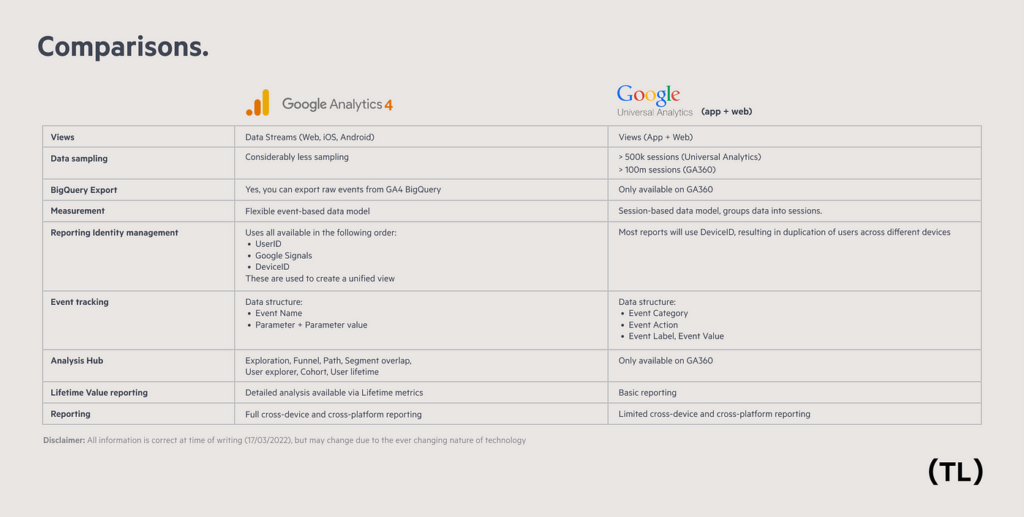It has been 520 days since you were first made aware that the legacy Google Analytics — Universal Analytics (UA) was being replaced by Google Analytics 4 (GA4) and available to use.
However, there are now only 470 days until organisations will be forced to use it due to the Universal Analytics retirement date set for 1st July 2023.
So, how many more days will you wait until action is taken?
You cannot carry over Universal Analytics (UA) data across to GA4 which is important as it means every day you wait is another day of lost data, in what will become your new GA4 analytics interface.
If you haven’t already implemented GA4, you have already lost the rich insights from the last 1.5 years. This includes COVID-19 behavioral data, seasonality-based purchases, business cycles, the impact of mini recessions, and much more. Not only that, but you are missing the ability to unearth deeper insights through unified reporting across platforms and devices.
Now at a high level, what are the key benefits of GA4?
- ID’s will allow teams to visualise more of the customer journey guiding channel optimsiations that create efficiencies in spend and lift conversion.
- Breaking down data silos with BigQuery exports facilitating custom connection and integration into reports (and audience ingestion).
- Improved quality and confidence in insights with reduced data sampling.
What is Google Analytics 4?
Google Analytics 4 (formerly known as “App + Web”) is the 4th iteration of Google Analytics, which will replace the Universal Analytics properties with the UA retirement as of 1st July 2023. It will allow businesses to track deduplicated users across different devices and understand how those users interact across multiple devices and platforms.
GA4 comes with additional features that were previously not available in the standard Universal Analytics properties. Some of these features include:
- Less data sampling — meaning revenue reports will be more accurate, as it won’t rely on extrapolation on sampled data.
- Improved identity tracking — giving a more unified, holistic story about a customer’s relationships with your business, so you can understand the customer journey across devices and platforms.
- Improved reporting interface — you will get the benefit of some features that were previously only available in GA360.

What are the key takeaways?
Businesses can and should begin migrating Universal Analytics to Google Analytics 4 to capture as much historical data as possible before the UA retirement date. Here are some immediate next steps and longer-term actions to consider:
- Implement Google Analytics 4 immediately on your website to start tracking data for your baseline
- Review and setup event tagging in GA4 to enhance the data being tracked
- Link GA4 with Google Ads and BigQuery to ensure a seamless transition for Google Ads and enhanced analysis
- Review and migrate existing reports from Universal Analytics to GA4 for continuity of reporting
- Set up new reports using the enhanced reporting features for richer insights
Don’t wait any longer!
It’s important to understand that if your organisation hasn’t implemented GA4 already, you’ve lost a wealth of data that could be referenced in years to come. However, the good news is that there is still time!
Don’t wait any longer and reach out to our Analytics team here at The Lumery to help advise, implement or reconstruct your transition to GA4.
If you are on the hunt for more advice or information, get in touch with us directly.